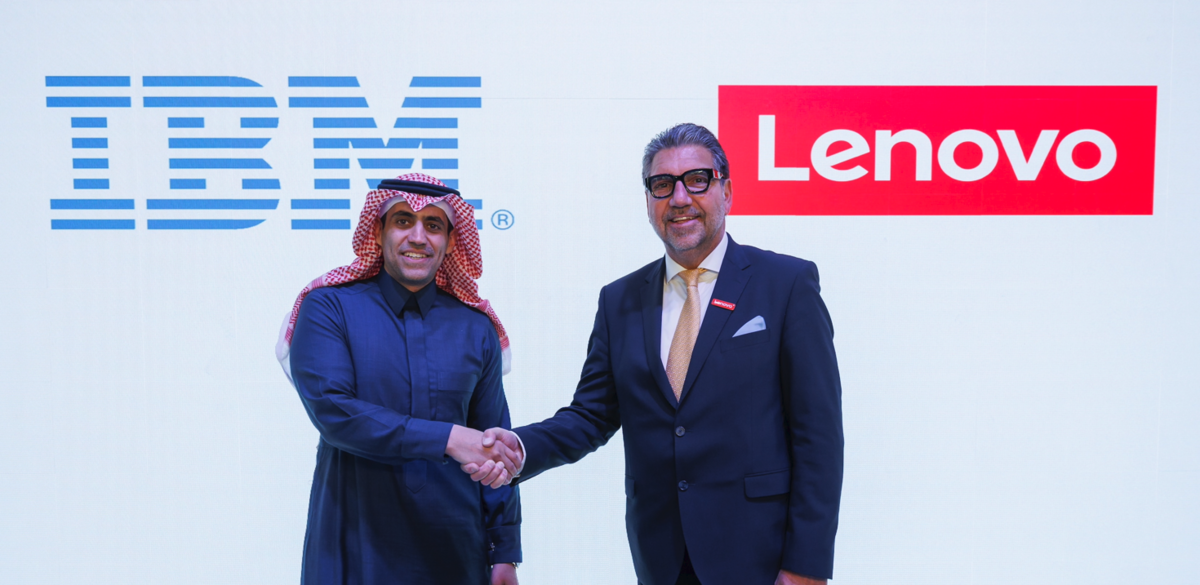RIYADH: Saudi telecommunication firm Mobily and Swedish company Ericsson have signed an agreement to explore an intent-driven autonomous network that enhances speed, scalability, and capacity, an official said.
Speaking to Arab News on the sidelines of the LEAP Tech Conference in Riyadh, Patrick Johansson, senior vice president and head of Market Area in Middle East and Africa at Ericsson, said that the memorandum of understanding will also explore the possibilities of bringing artificial intelligence into the telecommunications industry, which could elevate the performance of network providers.
The agreement comes amid the continued expansion of the Kingdom’s growing telecom and information and communication technology infrastructure sector, reaching a value of $3.5 billion in 2023.
According to analysis firm Research and Markets, the sector is expected to grow at a compound annual growth rate of 7.1 percent through 2029, driven by initiatives under the Kingdom’s Vision 2030.
“We signed an MoU with Mobily for an intent-driven network, which is very exciting because this is really bringing AI into our industry and how we make network performance even better. And as we go along through the days, we will continue to sign new agreements with direct customers and other partners as well,” Johansson told Arab News.
He added: “This intent-driven network is very much about using the information that you have in the network to enhance performance even further, and then using AI to make sure that this is an automated functionality within the network. Basically, you can say things that you used to do by hand or by individuals are now done automatically in the system.”
The MoU also aims to drive operational efficiency enhancements, boost service quality, and elevate user experiences among customers in Saudi Arabia.
In a separate press statement, Hakan Cervell, vice president and head of Ericsson in the Kingdom, said that an autonomous network can change requirements dynamically without human involvement.
“As we move toward intelligent society and industry, artificial intelligence will be integrated into almost everything — learning, adapting, and intelligently automating. We are glad to sign the MoU with Mobily to explore the potential of autonomy on their network to achieve unparalleled efficiency in service delivery and operations,” said Cervell.
Regarding Ericsson’s presence in Saudi Arabia, the official said that the Kingdom is a fantastic market and that the company has been operating in the nation since 1978.
He also added that the company is working with telecommunications firms like stc, Mobily, and Zain KSA to enhance customer experience.
It is also collaborating with the King Abdullah University of Science and Technology to explore the possibilities of a 6G rollout in the Kingdom in the coming years.
“We have a very long experience and collaboration within the Kingdom. We have been here through 1G, 2G, 3G, 4G and 5G. And now, we’re looking to the future, getting into 5G standalone, 5G advanced and bringing new services,” said Johansson.
He added: “This is the place where we have the biggest amount of spectrum available, which means that we can provide superior service together with our customers stc, Mobily, and Zain in the market. Now, we’re embarking into new opportunities as well with 6G, not around the corner, but in a couple of years. We’re working with KAUST to have research on that topic.”
During the interview, Johansson said that the establishment of Ericsson’s regional headquarters in Riyadh is helping the company serve its customers in the broader Middle East and North Africa region.
The communication technology firm announced in January that the Kingdom will be served under a newly established Customer Unit.
This move was part of Ericsson’s strategic ambition to simplify its organizational setup, enhance customer responsiveness, and strengthen local market accountability.
Regarding the localization of jobs, Johansson said that 60 percent of the employees in the company are Saudi nationals.
He added that Ericsson has also been engaged in providing graduate programs for Saudi nationals over the past few years, out of which more than 50 percent of the students enrolled are females.
Talking about the rollout of 6G, Johansson said that it is an “evolution rather than a revolution” happening in the telecommunications sector.
“We’ve had a number of revolutions; going from fixed to mobile, but now 6G will build on 5G. So it is creating greater speeds, even lower latency, and maybe, one of the more important from a consumer point of view, it is about energy efficiency that is good for sustainability, but it’s also for battery life,” said Johansson.
He added: “So it is basically about enhancing everything that we had in 5G and making it better. There are a few use cases that are being discussed. And again, this is why the collaboration between companies and academia is so important.”
Affirming Ericsson’s commitment toward sustainability, Johansson said that it is crucial to properly eliminate electronic waste.
“It is about providing the latest and greatest of technology, but we need to be kind to Mother Nature as well. With one of our partners in the Kingdom, Mobily, we have already brought back more than 400 metric tonnes of equipment and made sure that it’s disposed of. So, it is creating this overall circular economy and how we work together,” he added.
According to the Ericsson official, the use of AI is poised to revolutionize the telecommunications sector by enabling faster processing of large amounts of data.
“AI is really bringing further efficiency into our market. We have a lot of data. We used to do tweaking by hand. We added further software functionality. But with AI, we can combine so much more data, making it intent-based. We talked about the Mobily case of how we can actually make this much faster using AI technology,” said Johansson.


























